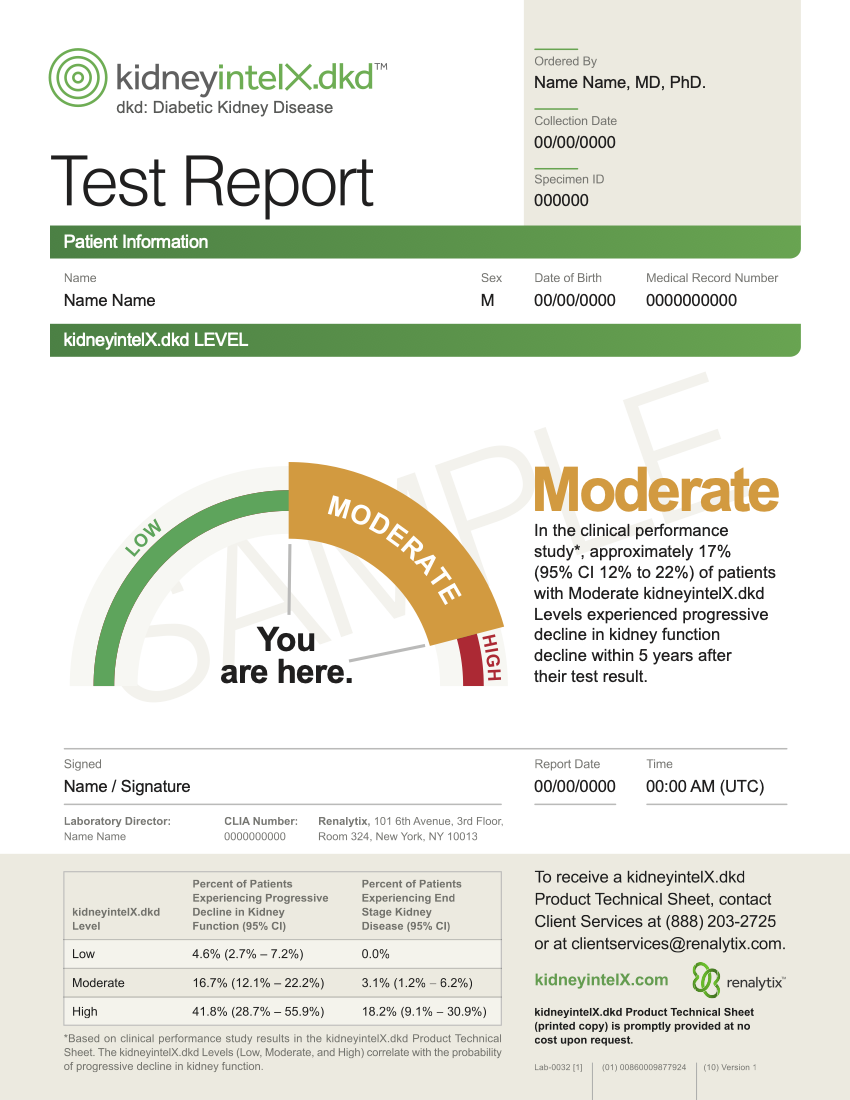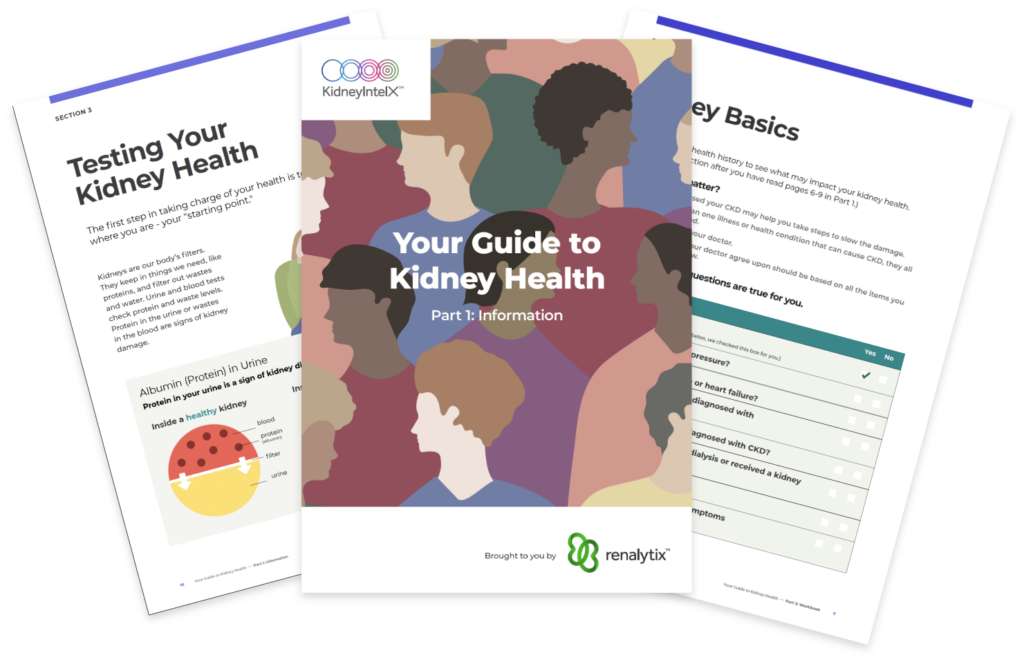Resources
Q: What does a kidneyintelX.dkd test report look like?
A. There are three different reports: low, moderate or high risk. You will discuss your risk result with your clinician.
Q: Why should I ask my doctor about the test?
A. If you are an adult patient with type 2 diabetes, you are at higher risk for also developing chronic kidney disease. Diabetes can affect how well your kidneys filter waste from your body. Most people don’t realize their kidneys are failing until it’s too late. Kidney failure requires dialysis or transplant. There is a lot you and your doctor can do to get ahead of this. It starts with a diagnosis of kidney disease. If diagnosed, kidneyintelX.dkd, a simple blood test, can help you and your doctor understand your individual risk for kidney disease progression.
Q: Why do I need the kidneyintelX.dkd test?
A. If you are an adult with type 2 diabetes, and have been diagnosed with chronic kidney disease, you should talk to your doctor about adding kidneyintelX.dkd into your care plan. kidneyintelX.dkd, a simple blood test, helps you and your doctor understand your relative risk (high to low) of kidney disease progression. Patients at higher risk for progression to kidney failure would likely require dialysis or transplant. There is a lot you and your doctor can do to get ahead of this. It starts with kidneyintelX.dkd.



